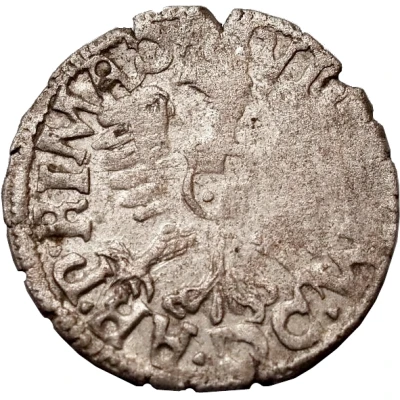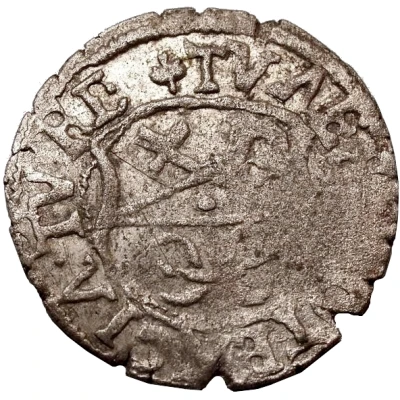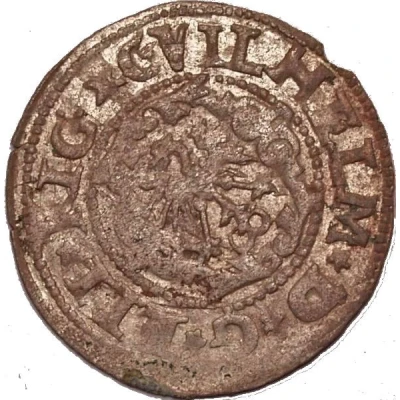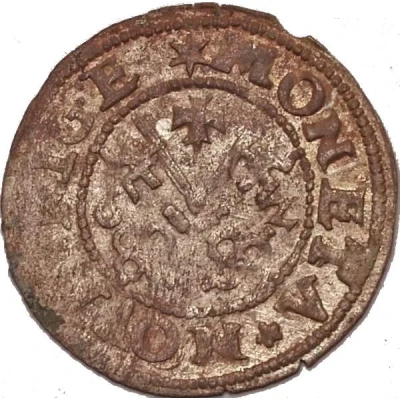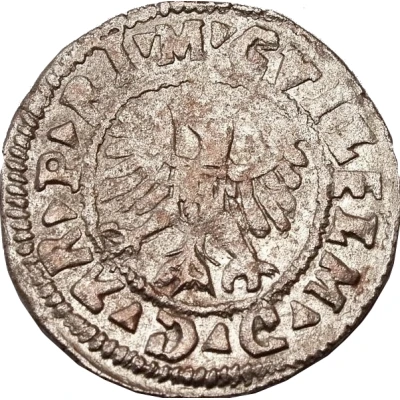
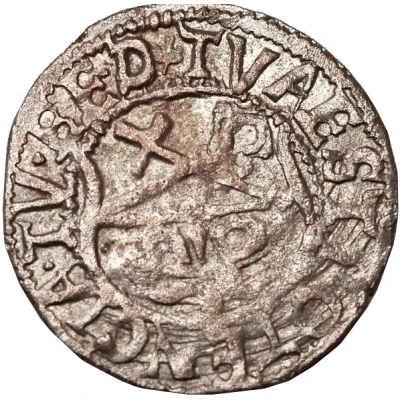

© Haljak Coin Auction
1 Schilling - Wilhelm von Brandenburg Koknese; large shield; with border ND
1547 year| Billon (.1875 silver) | 1.06 g | 18 mm |
| Issuer | Archbishopric of Riga (Livonian Confederation) |
|---|---|
| Archbishop | Wilhelm von Brandenburg (1539-1563) |
| Type | Standard circulation coin |
| Year | 1547 |
| Value | 1 Schilling |
| Currency | Schilling (1422-1563) |
| Composition | Billon (.1875 silver) |
| Weight | 1.06 g |
| Diameter | 18 mm |
| Thickness | 0.7 mm |
| Shape | Round (irregular) |
| Technique | Hammered |
| Orientation | Variable alignment ↺ |
| Demonetized | Yes |
| Updated | 2024-10-06 |
| Numista | N#152318 |
|---|---|
| Rarity index | 92% |
Reverse
Two-sectioned shield surrounded by legend.
Script: Latin
Lettering: TVA · EST · POTENGIA · TV · RE · D ·
Translation:
Tua Est Potentia Tuum Regnum Domine
Your power, your kingdom, Sir
Edge
Plain
Comment
While these coins are often given the full date-range for Wilhelm von Brandenburg's dateless schillings (1540-1547), these were probably struck at the very end of the range, seeing as how different the design is from all other dates.The exact lettering of the surrounding legend may vary.
No date (1547):
1) GVILELM · D · G · AR · P · RI · MA · / TVA · EST · POTENGIA · TV · RE
2) GVILELM · D · G · AR · P · RI · M · B / TVA · EST · POTENGIA · TV · RE
3) GVILELM · D · G · AR · P · RI · M · / TVA · EST · POTENGIA · TV · RE · D ·
4) GVILELM · D · G · AR · P · RI · M · / TVA · EST · POTENGIA · TV · RE ·
5) GVILELM · D · G · AR · P · RI · M · / TV · EST · POTENGIA · TV · RE · D
Interesting fact
One interesting fact about this coin is that it was minted during the reign of Wilhelm von Brandenburg, who was the Archbishop of Riga from 1539 to 1563. During his tenure, he implemented various reforms and modernized the administration of the Archbishopric, which helped to strengthen its economy and increase its influence in the region. The coin itself is a reflection of this period of growth and prosperity, and its design features a large shield with a border, which was a common motif in coinage during this time.
